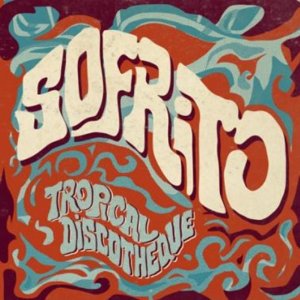From time to time we’re told that each generation thinks it is the first to invent sex. While I’m not sure about this, perhaps the sentiment is more applicable to the art of free partying. It seems like you can’t take a cab ride through a city centre on a Saturday night at the moment without seeing a bunch of people in tight jeans and winkle-pickers crammed into a launderette with a cheap stereo. And only a fashion magazine would dare spin this as anything other than merely the latest facet of a very old tradition. There is no communal space that can’t be improved on a Saturday night by the introduction of a soundsystem and a supply of cheap liquor and stimulants. One of my first bona-fide run-ins with both local law enforcement agencies and the noble profession of news journalism was in 1987 after taking a robust ghetto blaster, a cassette of the Butthole Surfers and several bottles of Thunderbird fortified wine to Pex Hill Quarry in Widnes. By the time the local paper came out the next week, it took me a few minutes to realise that the front page story: "Local Youths Arrested After Illegal Rave At Local Beauty Spot" was about me and some friends. When I attended my first actual "illegal rave" a few years later the difference in levels of organisation, power of stimulants and degree of sophistication were instantly and profoundly noticeable.
Sofrito Strut Mini Mix by Hugo Mendez and Frankie Francis by elninodiabloIt might have felt new but of course it was anything but. ‘Free parties’ have existed in one form or other since year zero, with recent antecedents being Brixton, Birmingham and Bristol’s blues parties; hippy free festivals; punk squat parties; block parties in the States; soundsystem parties in Jamaica etc. Just one recent variety has been the Sofrito parties of East London, held in warehouses and abandoned shops, applying the rave aesthetic to parties playing various strains of African and Latin music. In the sleeve notes to this amazingly enjoyable album, compiler and scene mainstay Hugo Mendez states: "The parties moved between vacant warehouse spaces, old shops and un-developed lofts in varying states of disrepair, always with the trusted sound system and neon palm tree in tow. As the queues got longer, the parties grew into larger (and often dingier) spaces, always with one eye on the door, a prayer that the electricity supply wouldn’t fail and a hope that the rum would last."
And while no doubt rose-tinted glasses are just as common in this instance as they are amongst ex-ravers (useful to hide the giant pupils and bloodshot eyes), the music here speaks for itself. With a lot of vintage tropical music favoured by London club DJs being both rare and often pressed up on substandard vinyl, this compilation, thankfully, favours party-starting remastered repressings and disco re-edits from 12" over anorak-friendly 7" originals.
There isn’t a bad song on this album and the simple act of playing it feels like you are summoning better weather. An early highlight is ‘Je Ne Bois Pas Beaucoup’ by Les Ya Toupas Du Zaire, who are local heroes in Congolese terms. This track, recorded in Benin in the late 1970s, is a trance-like soukous or African rhumba with lilting guitars over skittering hi-hats and a rock-solid funk bass line. If you don’t already own this track you need to take immediate steps to rectify the matter; it will act as a very immediate example of why a lot of people consider Zaire to be the most influential country in terms of African music in general.
Of particular interest is a small but perfectly carved slice of joy in the shape of Sir Victor Uwaifo’s ‘Ohue’. Sir Vic is a regular renaissance dude, having enjoyed a five decade career as musician, sculptor, bodybuilder, inventor, politician and poet as well as acting as Commissioner for Art in the Edo province of Nigeria and being the first ever recipient of a gold disc in his homeland. He scored this, the first of twelve, in 1966 for the single ‘Joromi’. Live performances of this song are usually characterized by a guitar solo played with his feet and tongue as well as his hands. ‘Ohue’ comes from the early 80s and sees him embracing a new disco direction to his well-established style. This particularly stripped-back and dancefloor effective cut is an edit courtesy of Sofrito regulars Frankie Francis and Simbad.
Was Sir Vic actually awarded his knighthood by the Queen? Probably not, but if it weren’t for our firmly held republican beliefs we would certainly be the first campaigning on his behalf for a real knighthood and Nobel Prize for services to humanity in general. Visit Sir Vic’s website to see some of his inventions including the magic guitar, the revolving guitar and just about the dopest car we’ve ever seen. We would expect nothing less from a man who claims to have invented the double necked guitar after meeting a mermaid on the beach during a drinking session in 1967.


